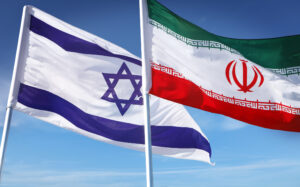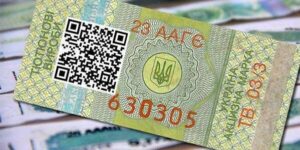
On June 18-19, 2025, Kyiv will host InnoTechEnergy, an exhibition and forum for innovative solutions in thermal and alternative energy, according to Energoreforma.
As noted in the event announcement, the exhibition will showcase the latest equipment, technologies, and solutions for modernizing heating systems, decentralized generation, renewable energy sources, energy efficiency, and digital transformation in the energy sector.
The exhibition will feature the Future Energy Forum, an innovation forum on the future of thermal and alternative energy.
The forum will serve as a platform for discussing key issues and finding effective solutions to today’s challenges.
The main focus will be on the following key areas:
The event organizers plan to bring together Ukrainian and international companies, representatives of municipalities, communities, relevant ministries, experts, and businesses to demonstrate and discuss the challenges and prospects for the development of key trends in the energy sector.
Registration for exhibition events: https://ite.ticketforevent.com/
For questions regarding participation in events and cooperation:
+38(067) 37-57-637
+38(095) 37-57-637

French President Emmanuel Macron arrived in Greenland on Sunday, where he expressed European solidarity and support for the Danish autonomous territory, which US President Donald Trump had previously stated his intention to take control of, France24 reports.
“It is important to show that Denmark and Europe are committed to this territory, which has very high strategic interests and whose territorial integrity must be respected,” Macron said.
The French president made the visit together with Danish Prime Minister Mette Frederiksen on their way to the G7 summit in Canada on June 15-17. They were met at Nuuk airport by Greenland’s Prime Minister Jens Frederiksen.
Macron criticized Trump’s intention to take control of the island. “I don’t think that’s something you do to allies,” the French president said.
According to the publication, the visit will also be an opportunity to discuss how to further strengthen relations between the EU and Greenland when it comes to economic development, the transition to low-carbon energy, and critical minerals.
Later on Sunday, Macron, Frederiksen, and Nielsen held a meeting on a Danish helicopter carrier, demonstrating France’s concern about security issues in the region.

Comparative analysis of the economies of Israel and Iran
| Indicator | Iran | Israel |
| GDP | ~$400 billion | ~$540 billion |
| GDP per capita | ~$4 400 | ~$54 200 |
| Public debt/GDP | ~18 % | ~67 % |
| Military expenditures | 2.5% of GDP ($10 billion) | 5% of GDP ($27 billion) |
| Currency/gold reserves | ~$7.7 billion | ~$76 billion |
| Innovation indicators | ~1 patent/million people | ~74 patents/million people, developed hi-tech |

Israel’s strikes on Iran’s gas infrastructure will push up gas prices in Europe, which means they may also rise in Ukraine, according to Andriy Kobolev, former head of the board of Naftogaz Ukraine.
“Israel has begun to destroy Iran’s gas infrastructure with drones… For those wondering what to do about gas purchases for this winter: this will have a significant impact on the balance (and therefore the price) of natural gas in Europe,” he wrote on Facebook on Sunday.
Kobolev explained that Iran had been supplying gas to Turkey, which resold it to the EU, but now, due to Israeli strikes, Iranian gas is at risk of being cut off, and the Turks will not be able to replace it with Russian gas because both gas pipelines are almost fully loaded.
“Therefore, Turkey will be forced to either reduce gas supplies to the EU or increase the share of more expensive LNG. In any case, this will push prices up in the EU. And if Israel continues to attack the Iranian gas sector, part of Russian gas may be redirected to Iran,” the former head of Naftogaz concluded, advising to prepare for such an impact on prices.
As reported, Ukraine was forced to return to significant gas imports from Europe due to Russian strikes on gas infrastructure.
According to the Ukrainian Gas Transmission System Operator (OGTSU), 501 million cubic meters were imported in May (54% via Hungary, 33% via Poland, and 12% via Slovakia), or 16.1 million cubic meters per day. At the same time, former OGTSU board chairman Serhiy Makogon believes that Ukraine needs to import approximately 870 million cubic meters per month, or 29 million cubic meters per day, to achieve last year’s planned gas storage targets in underground gas storage facilities (UGS).

The Georgian government is discussing a package of amendments to the Criminal Code and the Administrative Code aimed at tightening immigration policy. The goal is to strengthen the fight against illegal migration and prevent abuse of the asylum system.
Main amendments:
Deportation statistics:
How many foreigners are there in Georgia?
According to Geostat data for 2024, 135,811 people entered the country, including:
In addition, up to 100,000 Russians were in Georgia at the peak of the migration flow, of whom 60,000 remained and 30,000 left the country in 2023. According to estimates by the UN and migration centers, approximately 26,000 refugees live in Georgia, mainly Ukrainians, but also Syrians, Iraqis, Iranians, and Russians.
Georgia is tightening migration controls, introducing deportation with long-term bans, increasing fines, and speeding up the processing of applications. This is part of efforts to combat illegal migration and abuse of the asylum procedure.
However, the visa waiver remains in place and requirements for stays of up to one year are being simplified. Tens of thousands of foreigners, mainly from Russia and Ukraine, reside in the country, making the reforms both sensitive and controversial. The changes to migration legislation will have long-term consequences for both new arrivals and Georgia’s migration practices.

Revenues from excise taxes on manufactured and imported goods in January-May 2025 reached UAH 69.7 billion, compared to UAH 46.9 billion in the same period last year, according to Ruslan Kravchenko, head of the State Tax Service (STS).
“In five months, the budget has already received UAH 11.3 billion (+19.3%) more than planned. In May 2025, UAH 15.3 billion in excise tax was received,” he said.
Kravchenko explained that the overperformance was due to an increase in imports of excisable goods, in particular tobacco products.
“Systematic control over the circulation of excisable goods is also yielding noticeable results,” added the head of the State Tax Service.